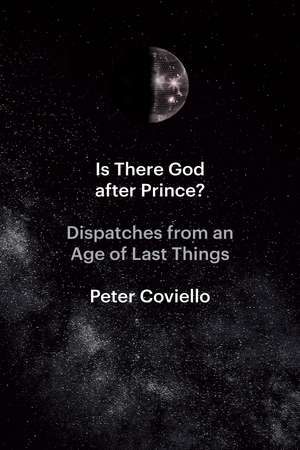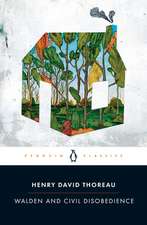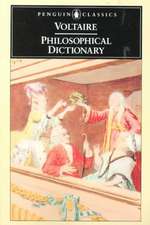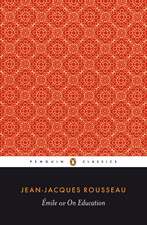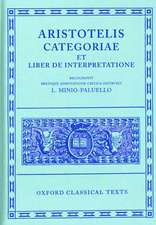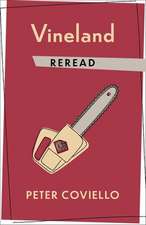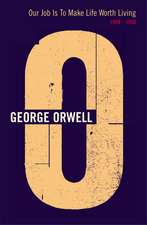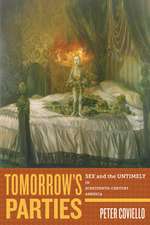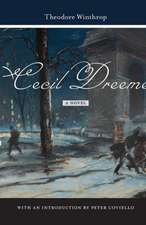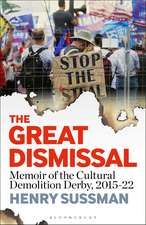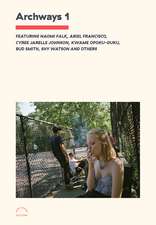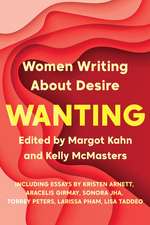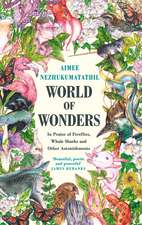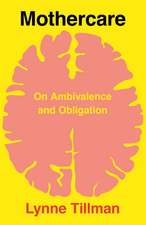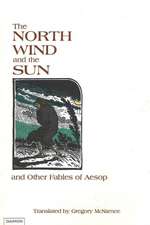Is There God after Prince?: Dispatches from an Age of Last Things
Autor Peter Covielloen Limba Engleză Paperback – 6 oct 2023
This is a book about loving things—books, songs, people—in the shadow of a felt, looming disaster. Through lyrical, funny, heart-wrenching essays, Peter Coviello considers pieces of culture across a fantastic range, setting them inside the vivid scenes of friendship, dispute, romance, talk, and loss, where they enter our lives. Alongside him, we reencounter movies like The Shining, shows like The Sopranos; videos; poems; novels by Sam Lipsyte, Sally Rooney, and Paula Fox; as well as songs by Joni Mitchell, Gladys Knight, Steely Dan, Pavement, and the much-mourned saint of Minneapolis, Prince.
Navigating an overwhelming feeling that Coviello calls “endstrickenness,” he asks what it means to love things in calamitous times, when so much seems to be shambling toward collapse. Balancing comedy and anger, exhilaration and sorrow, Coviello illuminates the strange ways the things we cherish help us to hold on to life and to its turbulent joys. Is There God after Prince? shows us what twenty-first-century criticism can be, and how it might speak to us, in a time of ruin, in an age of “Last Things.”
| Toate formatele și edițiile | Preț | Express |
|---|---|---|
| Paperback (1) | 79.75 lei 3-5 săpt. | +14.94 lei 6-12 zile |
| University of Chicago Press – 6 oct 2023 | 79.75 lei 3-5 săpt. | +14.94 lei 6-12 zile |
| Hardback (1) | 581.36 lei 6-8 săpt. | |
| University of Chicago Press – 25 oct 2023 | 581.36 lei 6-8 săpt. |
Preț: 79.75 lei
Nou
Puncte Express: 120
Preț estimativ în valută:
15.26€ • 16.32$ • 12.72£
15.26€ • 16.32$ • 12.72£
Carte disponibilă
Livrare economică 28 martie-11 aprilie
Livrare express 13-19 martie pentru 24.93 lei
Preluare comenzi: 021 569.72.76
Specificații
ISBN-13: 9780226828084
ISBN-10: 0226828085
Pagini: 304
Dimensiuni: 140 x 216 x 28 mm
Greutate: 0.36 kg
Ediția:First Edition
Editura: University of Chicago Press
Colecția University of Chicago Press
ISBN-10: 0226828085
Pagini: 304
Dimensiuni: 140 x 216 x 28 mm
Greutate: 0.36 kg
Ediția:First Edition
Editura: University of Chicago Press
Colecția University of Chicago Press
Notă biografică
Peter Coviello is the author of five previous books, including Tomorrow’s Parties, a finalist for a 2013 Lambda Award in LGBT Studies; Long Players, a memoir selected as one of Artforum’s Ten Best Books of 2018; and Make Yourselves Gods, also published by the University of Chicago Press. His essays have appeared in Frieze, Chicago Review, Los Angeles Review of Books, Raritan, Elle, and Believer, among other publications. He is professor of English at the University of Illinois at Chicago.
Extras
An attachment to life: One uncheerful presumption in what follows is that precisely that quantity is perhaps more faltering, more inconstant, than we like to admit. But another is that things like books and records, even when they cannot fortify that attachment, are for many of us a way of taking its measure, of calibrating it out to the last fluctuating decimal. And that— as you will find me saying a lot here, often in the key of a startled, semibewildered joyousness not at all far from Lisa Walker’s own— is a long human way from nothing.
I think of it like this: There are the worlds that make us, full of malignity and avarice, exploitation and struggle and halting moments of reprieve. And alongside these, there are the worlds we try to make, patched together out of scraps of this and that— texts and playlists, sex and talk, ardor and sorrow tracing their tight circuits around our lives. A sustained implicit proposition of this book is that one thing criticism might do— or try to do— is chart the ways certain cherished things (songs, poems, movies, etc.) fold these worlds together and, for a blazing instant or two, make them sensible to one another. That dizzying folding- together, you could say, is the secret subject of these essays, as much as any heartbreak ballad, radiant passage of prose, or Joni song.
Which is to say these essays form, cumulatively, their own quiet brief on behalf of “criticism.” Or, at least, of criticism in a certain mode: promiscuous in attention, prone to overheating, in the agitated vernacular, and wrought round with the interwoven dilemmas of worldly grief, local sorrow, ordinary blindsiding joy. These are pieces that approach a jumbled array of objects chiefly by setting them back into the scenes in which they were found— these range hectically from the private (a kid’s graduation, a divorce) to the exceedingly not- private (an election, a pandemic)— and speaking about them in the offhand idioms that circulated there. You will accordingly find a lot of room in here for immoderate devotion, lachrymose receptiveness, laughter unto illness, all sorts of sputtering wonder— as well as some boredom, some irritation, the lesser varieties of outrage, disbelief, disaffection. That, give or take, is the prevailing mode.
What follow, in other words, are essays: shortish bursts of ardor and appraisal, intertwining with life.
It perhaps goes without saying that this is not the only conceivable approach to the world of culture. (Having feelings about art, the polemicists among us might insist, is possibly the least interesting thing you can do with it.) Where, you might ask, is the levelheaded objectivity, the measured lucidity of detachment? To which I can only reply: not here. I pursue these different, rather more unplacid clarities not because they make for some absolute standard. As a person who also writes criticism in a more professionally academic mode, I can readily attest: they do not. Writing of this sort can claim for itself, it’s true, a whole host of authorizing antecedents. For me, these involve everything from scholarly fare like Eve Sedgwick’s Tendencies and Hortense Spillers’s Black, White, and in Color, Seamus Heaney’s Preoccupations, and Adam Phillips’s On Flirtation to galvanizing works like Flyboy in the Buttermilk by Greg Tate, Air Guitar by Dave Hickey, H Is for Hawk by Helen MacDonald, newer writing by Jessica Hopper, Hanif Abdur-raquib, Anne Boyer, and Teju Cole, and many, many another excursion into essayistic criticism. All these writers mean a lot to me, as thinkers and stylists both, and you’ll find their mixed impress throughout the work that follows.
For all that, though, I suspect the nearer truth may be that such preferences as these essays display— their refusals to pretend not to know what heartbreak is, say, or bliss— have their roots elsewhere. You could think of it, I suppose, as a kind of faith-keeping: just one small way of staying true to those noisy, voluble, homegrown scenes of appraisal and dispute where— perhaps like some of you— I first learned what it might mean to care about books and records with a prodigal, a lifewide devotion. Such scenes take up a good deal of airtime in the pieces gathered here, though I can tell you right now this is not because they weren’t in many respects preposterous, because of course they were, prolifically so. But then that’s so much of what love does, isn’t it? High up among its metamorphic endowments, it makes us preposterous.
I think of it like this: There are the worlds that make us, full of malignity and avarice, exploitation and struggle and halting moments of reprieve. And alongside these, there are the worlds we try to make, patched together out of scraps of this and that— texts and playlists, sex and talk, ardor and sorrow tracing their tight circuits around our lives. A sustained implicit proposition of this book is that one thing criticism might do— or try to do— is chart the ways certain cherished things (songs, poems, movies, etc.) fold these worlds together and, for a blazing instant or two, make them sensible to one another. That dizzying folding- together, you could say, is the secret subject of these essays, as much as any heartbreak ballad, radiant passage of prose, or Joni song.
Which is to say these essays form, cumulatively, their own quiet brief on behalf of “criticism.” Or, at least, of criticism in a certain mode: promiscuous in attention, prone to overheating, in the agitated vernacular, and wrought round with the interwoven dilemmas of worldly grief, local sorrow, ordinary blindsiding joy. These are pieces that approach a jumbled array of objects chiefly by setting them back into the scenes in which they were found— these range hectically from the private (a kid’s graduation, a divorce) to the exceedingly not- private (an election, a pandemic)— and speaking about them in the offhand idioms that circulated there. You will accordingly find a lot of room in here for immoderate devotion, lachrymose receptiveness, laughter unto illness, all sorts of sputtering wonder— as well as some boredom, some irritation, the lesser varieties of outrage, disbelief, disaffection. That, give or take, is the prevailing mode.
What follow, in other words, are essays: shortish bursts of ardor and appraisal, intertwining with life.
It perhaps goes without saying that this is not the only conceivable approach to the world of culture. (Having feelings about art, the polemicists among us might insist, is possibly the least interesting thing you can do with it.) Where, you might ask, is the levelheaded objectivity, the measured lucidity of detachment? To which I can only reply: not here. I pursue these different, rather more unplacid clarities not because they make for some absolute standard. As a person who also writes criticism in a more professionally academic mode, I can readily attest: they do not. Writing of this sort can claim for itself, it’s true, a whole host of authorizing antecedents. For me, these involve everything from scholarly fare like Eve Sedgwick’s Tendencies and Hortense Spillers’s Black, White, and in Color, Seamus Heaney’s Preoccupations, and Adam Phillips’s On Flirtation to galvanizing works like Flyboy in the Buttermilk by Greg Tate, Air Guitar by Dave Hickey, H Is for Hawk by Helen MacDonald, newer writing by Jessica Hopper, Hanif Abdur-raquib, Anne Boyer, and Teju Cole, and many, many another excursion into essayistic criticism. All these writers mean a lot to me, as thinkers and stylists both, and you’ll find their mixed impress throughout the work that follows.
For all that, though, I suspect the nearer truth may be that such preferences as these essays display— their refusals to pretend not to know what heartbreak is, say, or bliss— have their roots elsewhere. You could think of it, I suppose, as a kind of faith-keeping: just one small way of staying true to those noisy, voluble, homegrown scenes of appraisal and dispute where— perhaps like some of you— I first learned what it might mean to care about books and records with a prodigal, a lifewide devotion. Such scenes take up a good deal of airtime in the pieces gathered here, though I can tell you right now this is not because they weren’t in many respects preposterous, because of course they were, prolifically so. But then that’s so much of what love does, isn’t it? High up among its metamorphic endowments, it makes us preposterous.
Cuprins
Introduction: Praisesongs and Descants
Overture: Talk, Talk
Part I: Sounds
Is There God after Prince?
The Last Psychedelic Band
Karaoke for the People
The Everyday Disaster
What We Fight about When We Fight about Doctor Wu
Part II: Ceremonies
Love in the Ruins
Circumstance
Joy Rounds First
Loving John
The Impostor
Part III: Kids
Easy
Our Noise
Where I Want to Be
Ghost Stories
Rhapsody for the Crash Years
Part IV: Sentences
So-Called Normal People
Say Chi City
Our Man in the Fifteenth
Hollow
Killing Joke
Part V: Ends
My Thoughts Are Murder
Mercy Hours
In the Maze
Anthony and Carmela Get Vaccinated
Afterword: Exit Wounds
Acknowledgments
Notes
Index
Overture: Talk, Talk
Part I: Sounds
Is There God after Prince?
The Last Psychedelic Band
Karaoke for the People
The Everyday Disaster
What We Fight about When We Fight about Doctor Wu
Part II: Ceremonies
Love in the Ruins
Circumstance
Joy Rounds First
Loving John
The Impostor
Part III: Kids
Easy
Our Noise
Where I Want to Be
Ghost Stories
Rhapsody for the Crash Years
Part IV: Sentences
So-Called Normal People
Say Chi City
Our Man in the Fifteenth
Hollow
Killing Joke
Part V: Ends
My Thoughts Are Murder
Mercy Hours
In the Maze
Anthony and Carmela Get Vaccinated
Afterword: Exit Wounds
Acknowledgments
Notes
Index
Recenzii
“Is There God After Prince?—great title, that—is Chicago writer Coviello’s cultural thoughts centered around a sharp theme: If we’re headed for collapse, what does it mean to love anything deeply? Particularly the seemingly ephemeral, like Chance the Rapper or 'The Sopranos.' It’s an anxious, heady collection."
"Ultimately, the critical project raised by Is There God after Prince? regards the formation of personal canons—the albums, novels, and other cultural items that give individual meaning and grant connections with other people. These canons are, by definition, eccentric. But they are also teachable and transferable, generating new cultural undergrounds with their own secret handshakes and symbolic muted horns.
'Give me an intricate thing upon which to expend a healthy quantity of scrutinizing imagination and I will give back to you something you might have reason to love,' Coviello concludes in the book’s final pages, summarizing the essential role of the critic. There is an anti-elitist heart and a democratic soul to Is There God after Prince? Our objects and collections may not save us from our mortal fates. Yet, despite this hard truth, they provide comic/heroic narratives, danceable soundtracks, and indispensable human connections until we get there."
'Give me an intricate thing upon which to expend a healthy quantity of scrutinizing imagination and I will give back to you something you might have reason to love,' Coviello concludes in the book’s final pages, summarizing the essential role of the critic. There is an anti-elitist heart and a democratic soul to Is There God after Prince? Our objects and collections may not save us from our mortal fates. Yet, despite this hard truth, they provide comic/heroic narratives, danceable soundtracks, and indispensable human connections until we get there."
"Omnibus of brainy, exuberant essays that explore with insight and nuance an extraordinary range of subjects. . . . In Is There God After Prince?, there is so much clear seeing and close listening and expansive thinking."
"Coviello navigates. . . a world obsessed with nostalgia for the past and the impending disaster of the future. Exploring our yearning for entertainment amid turmoil, Coviello examines how art’s meaning transforms alongside us. The Sopranos, Gladys Knight, Sally Rooney, The Shining, Joni Mitchell, Paula Fox, Steely Dan—no piece of culture evades his gaze. Through the lens of what Coviello calls 'enstrickenness,' he wonders: Is there genuine hope to be found through sentimentality?"
"Coviello reflects on myriad opportunities for connection through critical engagement with the arts in his intriguing essay collection . . . . Using the arts as a springboard, the book engages in the critical examination of personal, professional, and society-wide relationships, tying these to broad themes including love, fulfillment, and grief. This solidifies Coviello’s thesis—that 'one thing criticism might do—or try to do—is chart the ways certain cherished things (songs, poems, movies, etc.) fold . . . worlds together and, for a blazing instant or two, make them sensible to one another.' A thought-provoking essay collection, Is There God after Prince? elevates the idea that emotional attachment to the arts can be a catalyst for reflection, memory formation, and relationship building."
"An exquisitely written romp through Coviello’s pop culture favorites."
"To say that this collection takes the reader on a personal expedition is an understatement. Coviello’s elegant use of language keeps the often complex stream-of-consciousness strapped to a critical foundation. As in life, even in view of a nearing end, these essays contain multitudes."
“Coviello is our bard of ardor, of nuanced connection, of passionate critical engagement with objects of art and each other. There is God, or at least life, after Prince, for a little while, anyway, but it’s up to us to seek vibrancy and feeling and new meaning in a world that seems too ready to close up shop. Coviello’s essays are beautiful demonstrations of our task.”
"It feels like the world is leaving us—by dying—but in a voice at once ardent and incisive, Coviello refuses to leave the world. With essays on Henry James and post-punk, love and college radio, Is There God after Prince? is a joyous cry of praise and protest. Reading this book is like spending an evening on a barstool next to your sharpest, warmest-hearted, and best-read friend: you emerge with a reading list and a renewed will to live."
"Is There God after Prince? is a book that pushes back, with loving acuity and occasional fury, against the lazy, pre-chewed truisms of our op-ed titans. The impassioned encounters with books, songs, and people that fill these chapters reflect not so much a host of obsessions as an attachment to life itself."
